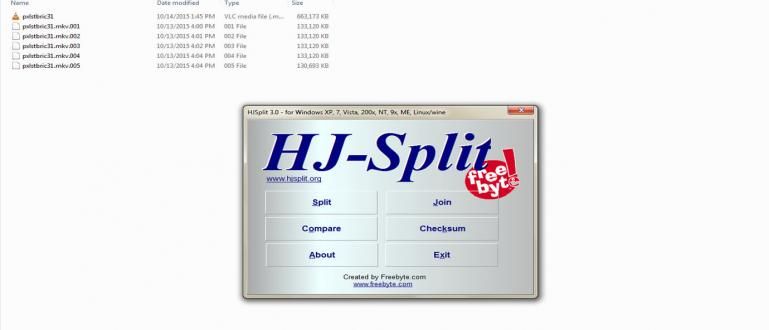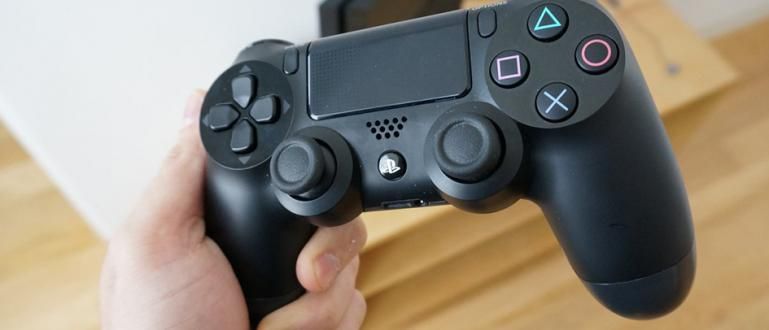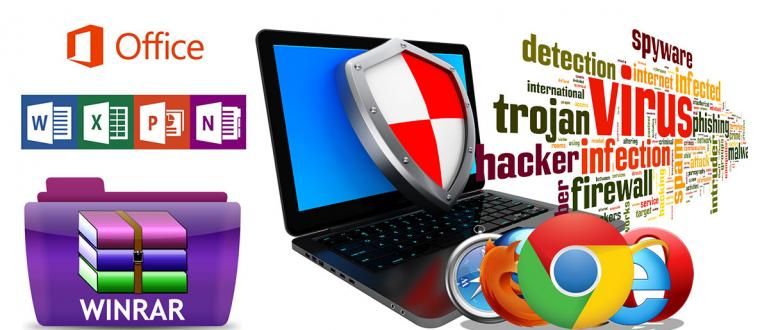It's annoying when the PC slows down over time. Well, here Jaka will tell you how to solve a slow computer and its causes.
Currently, PCs have become one of the main needs, especially for those who do work in fields that are always in contact with computers such as office workers, bank workers, programmers, and many others who really need computer equipment.
However, sometimes when we are dealing with a computer (or laptop), we often experience problems related to computer performance which is sometimes very slow so that it hinders work and makes us emotional.
Maybe some of us will assume that the problem occurs because of the old age of the computer or because the computer is rarely cleaned.
Well, to find out more, let's look at the following article on how to deal with a slow computer.
Causes and How to Overcome a Slow Computer
Maybe the two reasons above are true, but actually there are several other factors that can cause your computer to be very slow.
What are the factors in question and how to overcome them? Check out the discussion about the factors that can make the computer slow and how to overcome them.
1. Defragmented Hard Disk
 Photo: systweak.com
Photo: systweak.com The first factor that causes a computer to be very slow is because your hard disk is defragmented, causing the process of reading data on your hard disk partition to be slow.
In the process of reading and searching data, the computer system will search for data stored on the hard disk using an index system so that if you have never defragmented the hard disk, the data stored on Your hard disk will be scattered so that when accessed, it will take a longer process.

To fix this, you must defragment the Hard Disk at least once or twice a week. Just type Disk Defragmenter in the Start Menu and schedule the defragmentation of your Hard Disk.
2. Browser Factors That Are Too Heavy

Another factor that can also cause your computer to slow down is the browser factor. When you open a browser, of course you tend to open multiple tabs on the browser to access several sites at once.
Well, indeed this will make it easier for you to get a lot of information at once but it will also place a greater burden on your computer's RAM.
Just imagine if you open 10 tabs simultaneously, of course the load on your computer's RAM will also be very much.
Not to mention if you use a heavyweight browser like Google Chrome which can take up to 500 MB of RAM even though you only have 4-5 tabs open or if you run two different browsers at once.
To solve problems like this, try not to open too many tabs while using the browser and I highly recommend not using the Google Chrome browser if your RAM is only around 1-2 GB.
3. Too Many Temporary Files

Actually temporary files can be very useful for speeding up your access to site data that you have visited, but like a double-edged sword, temporary files can also cause your computer to slow down.
For example, if your hard disk is almost full, the presence of these temporary files will take up hard disk space that should be left over to be used as a page file in order to help your RAM run various programs.

To solve problems like this, you can use a number of applications to clean temporary files on your computer, such as the CCleaner application.
4. Too Many Start-Up Applications
When you feel that the start-up of your computer is very slow and sometimes takes up to 2-3 minutes plus the problem of loading times that are so long when opening applications shortly after start-up on your computer.
You can make sure the main cause of the problem is the number of applications running during the start-up process.

With so many applications running at start-up, your RAM will work extra hard to allocate all the space it has on applications running at start-up so of course it will make RAM very burdened.
To overcome this, you need to turn off a number of start-up programs that run by default on your computer by typing msconfig in the start menu then selecting the start-up tab and turning off some start-up programs that take up a lot of RAM such as Tune-Up Utilities if any.
5. Malware Infection
 Photo: cbronline.com
Photo: cbronline.com If after checking the 4 factors above and you have taken the corrective action as I described above but your computer is still slow,
So it can be concluded that your computer has been infected with malware that runs in the background of your computer system so that it interferes with the performance of your computer.

To solve this malware problem yourself, you can use several anti-virus with a good reputation such as Kaspersky, Avast, Nod32 and many more.
Those were the 5 factors that caused your computer to be slow and how to deal with a slow computer, hopefully it's useful and good luck.
Make sure you always maintain the health of your computer by defragmenting and scanning using anti-virus regularly and make sure you regularly clean temporary files on your computer to avoid slow computer problems.
, see you and make sure you leave comments and share with your friends.









